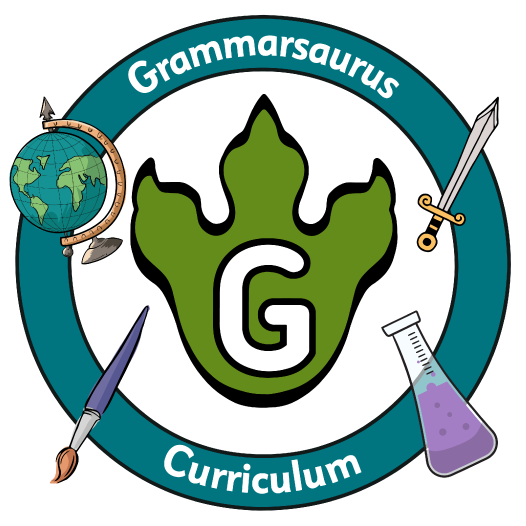
The Grammarsaurus History Curriculum aligns with the English National Curriculum. The themes, concepts, substantive knowledge and historical skills have been mapped to ensure that pupils following our sequence of learning have ample opportunity to make progress in history by knowing and remembering more history content.
Themes
Disciplinary Concepts
Curriculum Aims
- Know and understand the history of these islands as a coherent, chronological narrative from the earliest times to the present day: how people’s lives have shaped this nation and how Britain has influenced and been influenced by the wider world.
- Know and understand significant aspects of the history of the wider world: the nature of ancient civilisations; the expansion and dissolution of empires; characteristic features of past non-European societies; achievements and follies of mankind.
- Gain and deploy a historically grounded understanding of abstract terms such as ‘empire’, ‘civilisation’, ‘parliament’ and ‘peasantry’.
- Understand historical concepts such as continuity and change, cause and consequence, similarity, difference and significance, and use them to make connections, draw contrasts, analyse trends, frame historically valid questions and create their own structured accounts, including written narratives and analyses.
- Understand the methods of historical enquiry, including how evidence is used rigorously to make historical claims, and discern how and why contrasting arguments and interpretations of the past have been constructed.
- Gain historical perspective by placing their growing knowledge into different contexts, understanding the connections between local, regional, national and international history; between cultural, economic, military, political, religious and social history; and between short- and long-term timescales.
KS1
Toys
(Changes within living memory)

How have children’s toys
changed since our older
relatives were little?
changed since our older
relatives were little?
This unit looks at the changes in toys over the past 60 years. The children will begin by looking at and comparing modern-day toys. Each lesson then looks back a little further in time, with the children looking at the toys they played with when they were babies and the toys their parents had, and concludes with them looking at their grandparents’ toys.
Society and Community
trade, civilisation, industry
Famous Explorers
(Significant individuals and events)
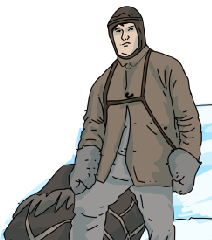
Where
have humans
explored?
have humans
explored?
This unit looks at how explorers of the past have made significant discoveries and shaped the world that we live in. The lessons will look at the different places that have been explored so far, such as below the sea, the world’s continents and even space. Children will also have the opportunity to consider the places on Earth that are still to be explored.
Exploration and Invasion
exploration
Technology
(Changes within living memory)

How has technology
changed our lives over
the last 60 years?
changed our lives over
the last 60 years?
This unit explores how technology has changed over the past 60 years. Children will consider how technology has changed the way we talk, write and are entertained. The unit includes a focus on Tim Berners-Lee as a significant individual, and explores his contributions to the advancement of the World Wide Web.
Society and Community
trade, industry
Kings, Queens and Castles
(Significant individuals and local places)
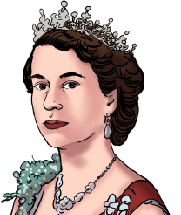
Where did kings
and queens live
through time?
and queens live
through time?
This unit explores where monarchs have lived in the past up to the present day. The children will look at the different kings and queens in time order, starting with King Charles III and going back in time until William I. The children will discuss and compare the different castles they lived in and the lives they led.
Power
empire, monarchy
Hospitals and Healthcare
(Significant individuals and local individuals)
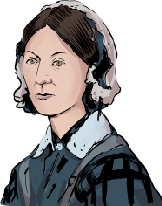
How did Florence Nightingale
and Edith Cavell help to
improve hospitals?
and Edith Cavell help to
improve hospitals?
This unit explores how Florence Nightingale and Edith Cavell have had an impact on hospitals and healthcare today. The children will look at each of them in turn, exploring why they acted in the way they did and why they are still remembered. Comparisons are made between hospitals and healthcare of the past and the modern day.
Conflict and Disaster
empire, industry
The Great Fire of London
(Events beyond living memory)
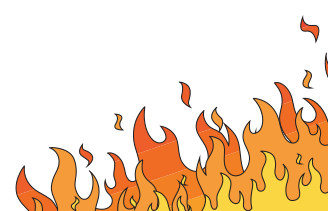
How did the
Great Fire change
London?
Great Fire change
London?
This unit explores the cause and consequences of the Great Fire of London. Children will go back in time and ‘meet’ the individuals involved and discuss how Londoners responded to the fire. Children will learn about significant individuals such as Samuel Pepys and Christopher Wren.
Conflict and Disaster
monarchy, civilisation
Y3
Stone Age to Iron Age
(Changes in Britain from the Stone Age
to the Iron Age)
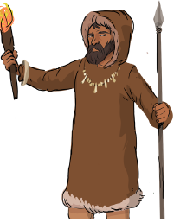
How did daily life change
from the Stone Age
to the Iron Age?
from the Stone Age
to the Iron Age?
In this unit, children learn about prehistory in Britain and how we find out about prehistory. They discover what life was like through each of the main time periods of the Stone Age, right through to the Iron Age. Children learn about how civilisation started, and how agriculture became so important for survival and how different metals, such as bronze and iron, changed how we interacted with each other.


Society and Community
migration, settlement, trade, civilisation, industry
Ancient Egypt
(The achievements of the earliest civilisations)
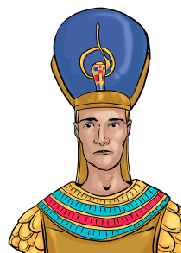
What were
the greatest achievements
of Ancient Egypt?
the greatest achievements
of Ancient Egypt?
This unit explores how early civilisation started in Egypt. The children will discover how the upper and lower kingdoms joined together to create the Old Kingdom of Ancient Egypt. Comparisons are made between the timelines of Ancient Egypt and Neolithic Britain. The children will then learn all about the Egyptian gods, what Ancient Egyptians believed about the afterlife, how the pyramids were built and some of the greatest pharaohs in all of Egypt’s history.
Power
civilisation, trade, settlement, empire, monarchy
Y4
Ancient Greece
(A study of Greek life and achievements and their
influence on the world)
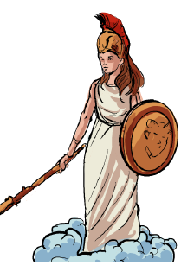
What were the greatest
achievements of the
Ancient Greeks?
achievements of the
Ancient Greeks?
This unit looks at the Ancient Greeks and their achievements from around 3000 BCE to the reign of Alexander the Great around 330 BCE. Children will think about and discuss how we know about the early Greeks by looking at excavation evidence and what this tells us about their way of life. Comparisons are made between Athens and Sparta and at the end of the unit, children will discuss and analyse the impact that the different leaders Ancient Greece had.
Society and Community
civilisation, trade, settlement, empire, monarchy
The Romans
(The Roman Empire and its impact on Britain)
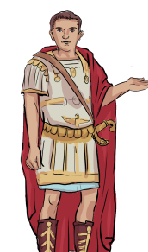
How did the
Roman Empire
impact Britain?
Roman Empire
impact Britain?
This unit explores the Romans and their achievements from 43 CE to 410 CE. The children will discuss what life was like in early Rome, who was in charge and held power across the Empire and how the Emperors trained up their powerful armies. There is an introduction to significant historical figures of the time, such as Boudicca, and children will think about and consider the events that led to the downfall and, ultimately, the end of the Roman Empire. 

Exploration, Invasion and Power
civilisation, trade, settlement, empire, monarchy
Y5
Anglo-Saxons and Vikings
(Britain's settlement by Anglo-Saxons and Vikings)
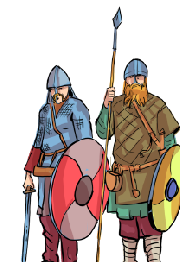
How did England change
during the settlement
of the Anglo-Saxons and Vikings?
during the settlement
of the Anglo-Saxons and Vikings?
This unit explores the Anglo-Saxons and Vikings and their achievements from 410 CE to 1066 CE. Children will think about why the Anglo-Saxons travelled to England’s shores and decided to settle. They will move on to find out how England was ruled during the settlement of the Anglo-Saxons and how they kept control of the 7 different kingdoms across the land. The unit finishes with a look at who the Vikings were and how their arrival impacted the political and social hierarchy of the time. 

Exploration and Invasion
migration, trade, monarchy, settlement
Ancient Maya
(A non-European study that provides contrast
with British history)
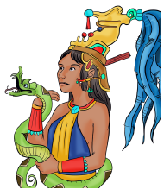
What similarities and differences
are there between the Maya
civilisation and England from
the 8th to the 10th century?
are there between the Maya
civilisation and England from
the 8th to the 10th century?
This unit explores the Ancient Maya civilisation and its achievements from 250 CE to 950 CE. The lessons cover who the Maya people were, when and where in the world they lived, and the reasons why they were so successful. The unit makes comparisons between the Ancient Maya civilisation and Anglo-Saxon Britain, focusing on the similarities and differences between the Maya city-states and the Anglo-Saxon kingdoms, drawing on the archaeological evidence available to us.
Power
civilisation, trade, settlement, empire, monarchy
Y6
Crime and Punishment
(Post-1066 study)
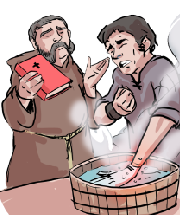
How has crime and
punishment changed over
time in Britain?
punishment changed over
time in Britain?
This unit explores how crime and punishment has changed over time in Britain. Children will explore what was seen as a crime over time and the different gruesome punishments that were handed out to criminals. The children will find out about the development of the police force from the Victorian period right through to the new millennium.
Power, Conflict and Disaster
empire, monarchy, civilisation, industry
World War II
(Post-1066 study)
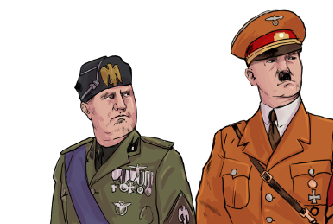
What role did Britain play
in World War II, and
how did this impact
outcome of the war?
in World War II, and
how did this impact
outcome of the war?
This unit explores how World War Two began and gives the children a wider understanding of how concepts such as empire influenced Hitler and his plan to dominate Europe. The children will explore the significance of the Battle of Britain and in lesson 7, complete a local study, looking at a range of sources from different regions of the United Kingdom. 

Power, Conflict and Disaster
empire, monarchy, civilisation
